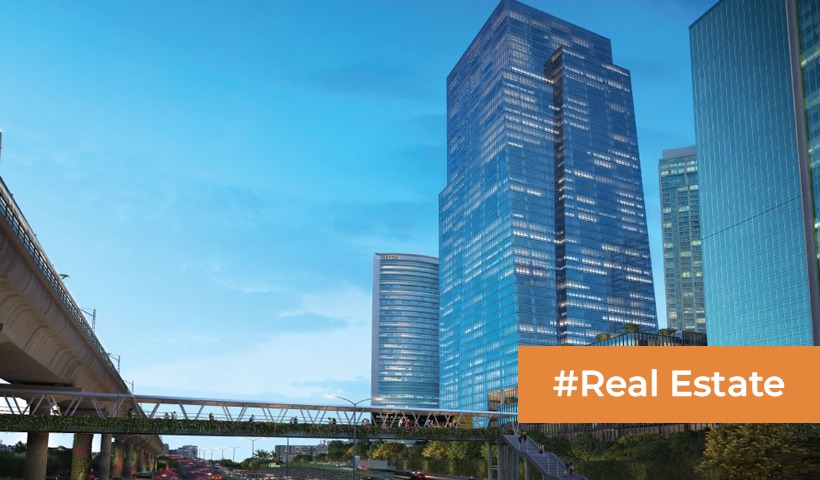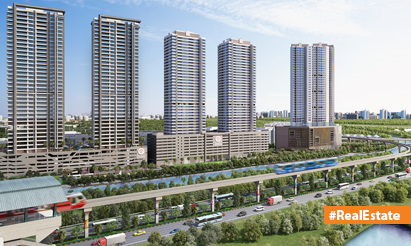Mumbai Property Registrations Soar to an 11-Year High in 2023
In a surprising and promising turn of events, property registrations in Mumbai witnessed an unprecedented surge in 2023, reaching an 11-year high. This surge not only reflects the resilience of the real estate market but also raises questions about the driving forces behind this remarkable uptick. In this comprehensive exploration, we delve into the data, trends, and implications of Mumbai’s property registration boom, unraveling the factors that have contributed to this notable surge.
The Surge in Property Registrations:
- Quantifying the Boom: According to official records and data from the registration department, Mumbai experienced a significant surge in property registrations in the year 2023, reaching levels not seen in over a decade. This surge is indicative of renewed interest and activity in the city’s real estate sector.
- Residential and Commercial Dynamics: The surge in property registrations is not limited to a particular segment but is observed across both residential and commercial properties. This broad-based growth suggests a more comprehensive revival of confidence and investment in Mumbai’s real estate market.
Factors Driving the Surge:
- Favorable Government Policies: Government initiatives such as reduced stamp duty rates and other pro-real estate policies have played a pivotal role in encouraging property transactions. The temporary reduction in stamp duty rates, in particular, has acted as a powerful incentive, attracting homebuyers and investors alike.
- Economic Stability and Recovery: The economic stability and recovery witnessed in the aftermath of the global economic challenges have instilled confidence in potential homebuyers and investors. Mumbai’s real estate market is seen as a lucrative avenue for investment, given the city’s economic resilience.
- Pent-up Demand Unleashed: The surge in property registrations may also be attributed to pent-up demand that accumulated during periods of uncertainty. As the economic and social landscape stabilized, this pent-up demand was unleashed, contributing to the robust growth in property transactions.
- Low Mortgage Interest Rates: The prevailing low-interest-rate environment has made borrowing more affordable, enticing individuals and businesses to explore real estate opportunities. Lower mortgage rates have been a driving force behind the increased purchasing power of potential homebuyers.
- Digital Transformation of Real Estate Transactions: The digital transformation of real estate transactions, facilitated by online registration processes and digital platforms, has streamlined and accelerated the property registration process. This technological leap has made property transactions more accessible and convenient, further fueling the surge.
Trends and Patterns in Property Registrations:
- Shift in Residential Preferences: The surge in property registrations has brought to light changing trends in residential preferences. There is a noticeable shift towards suburban areas, with homebuyers seeking larger spaces, improved amenities, and a more relaxed lifestyle away from the city center.
- Commercial Real Estate Resurgence: The increased registrations in commercial real estate transactions indicate a resurgence in commercial activity. Businesses, both local and multinational, are actively investing in office spaces, retail properties, and commercial complexes, signaling optimism in the economic landscape.
- Rise of Affordable Housing: Affordable housing segments have experienced significant traction, reflecting the demand for budget-friendly options. Developers focusing on affordable housing projects have seen increased interest, aligning with the government’s vision of ‘Housing for All.’
Implications for Mumbai’s Real Estate Landscape:
- Boost to Infrastructure Development: The surge in property registrations implies a demand for new developments and infrastructure. The increased economic activity associated with real estate transactions could potentially fuel more extensive infrastructure projects, contributing to the city’s growth.
- Impact on Property Prices: The surge in demand may influence property prices, and stakeholders will closely monitor how this surge affects the overall pricing dynamics. Striking a balance between affordability and profitability will be crucial in sustaining the momentum.
- Job Creation and Economic Growth: The real estate boom is not only a reflection of economic revival but also a contributor to job creation and overall economic growth. The construction and real estate sectors are significant employers, and their resurgence is likely to have positive cascading effects on various other industries.
Challenges and Considerations:
- Sustainability of Growth: Ensuring the sustainability of this growth will require ongoing government support, strategic urban planning, and measures to address potential challenges such as infrastructural strain and environmental concerns.
- Regulatory Adaptation: Regulatory bodies and authorities must adapt to the evolving real estate landscape. Monitoring and updating policies in response to market dynamics will be essential to maintain a healthy and transparent real estate ecosystem.
The surge in property registrations in Mumbai in 2023 is a positive signal for the city’s real estate market and the broader economy. As stakeholders navigate this period of growth, it is crucial to monitor trends, address challenges, and foster a sustainable and inclusive real estate landscape. The implications of this surge go beyond transaction numbers; they resonate with the aspirations, opportunities, and challenges that define Mumbai’s dynamic real estate sector in the years to come.




